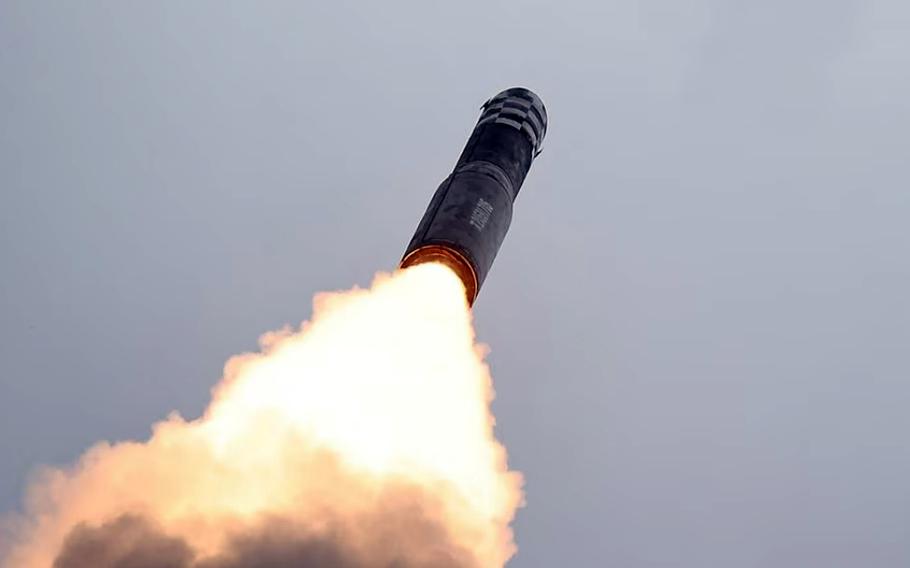
North Korea launches a Hwasong-18 intercontinental ballistic missile in this image released by the state-run Korean Central News Agency, July 13, 2023. (KCNA)
TOKYO — Ballistic missile launches by North Korea, like the three Monday, are meant to deter the United States with the supreme goal of keeping the country’s communist rulers in power, an expert on the reclusive regime told reporters Monday.
Pyongyang fired three short-range ballistic missiles that splashed down in the Sea of Japan that morning, hours before Keio University professor Atsuhito Isozaki, an expert in North Korean politics, briefed reporters during a webinar presented by the Foreign Press Center Japan in Tokyo.
The latest launches are among 180 missiles fired by North Korea since Kim Jong Un inherited power in 2011, Isozaki said.
“Which means that these are within the high-level aim of bolstering their military capability and deterrence vis-à-vis the U.S … and that’s part of their supreme goal of perpetuating the regime,” he said.
Pyongyang is continuing to experiment, test, train and conduct military drills as part of that effort, Isozaki said.

Keio University professor Atsuhito Isozaki, an expert in North Korean politics, briefs reporters March 18, 2024, in this screenshot from a webinar hosted by Foreign Press Center Japan. (Foreign Press Center Japan)
“The overwhelming, important goal is to strengthen deterrence but there are secondary effects,” he said. “It may be possible to use these (missile tests) as cards for diplomacy.”
Missile launches also bolster the North Korean people’s morale and strengthen Kim’s authority, Isozaki said, adding that the North is among only nine nations with nuclear weapons and only six with intercontinental ballistic missiles.
“This is sufficient for North Korea to raise national morale,” he said.
Russia’s invasion of Ukraine in February 2022 — a nuclear power attacking a smaller, non-nuclear neighbor — demonstrated for the North Korean regime that nuclear weapons are essential to its survival, Isozaki said.
Predicting Japan’s response to an accidental North Korean missile strike is beyond his expertise, Isokazi said. But Japan would likely act rapidly in concert with its ally the United States, he said.
In recent years, the North has moved away from a policy of reunification with South Korea, he said.
Kim in January ordered an end to the formal goal of reunifying the two Koreas and named the South his country’s “principal enemy” and the nation “most hostile” to Pyongyang.
The North has shut down agencies working with South Korea and stopped using words such as “unification” or referring to “80 million compatriots” from both countries in its statements, Isozaki said.
Pyongyang now says “North-South relations are no longer a kinship or homogeneous relationship but have completely become a relationship between two hostile countries, two belligerents at war,” he said.